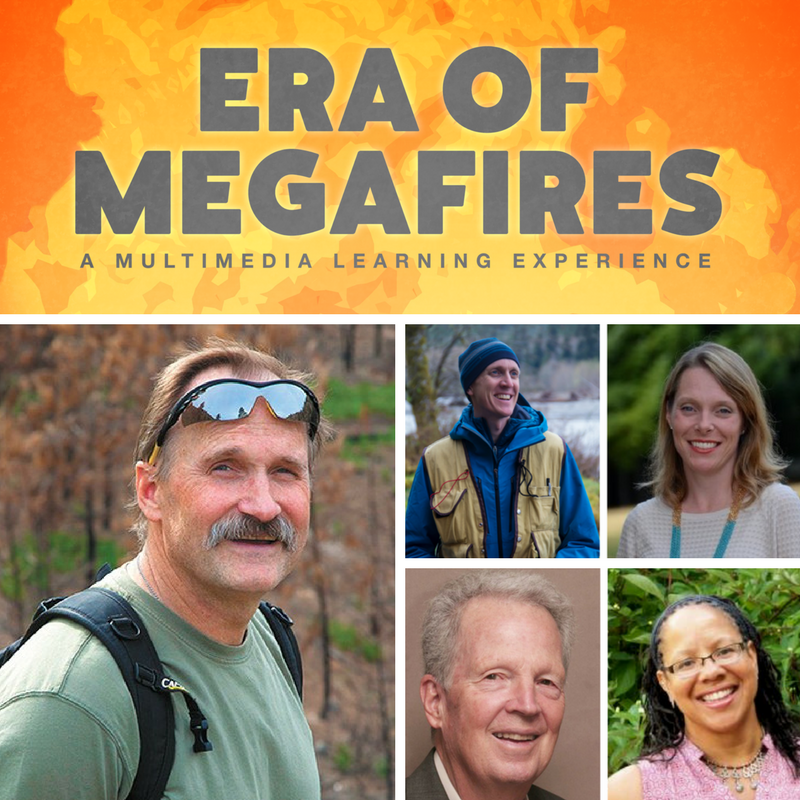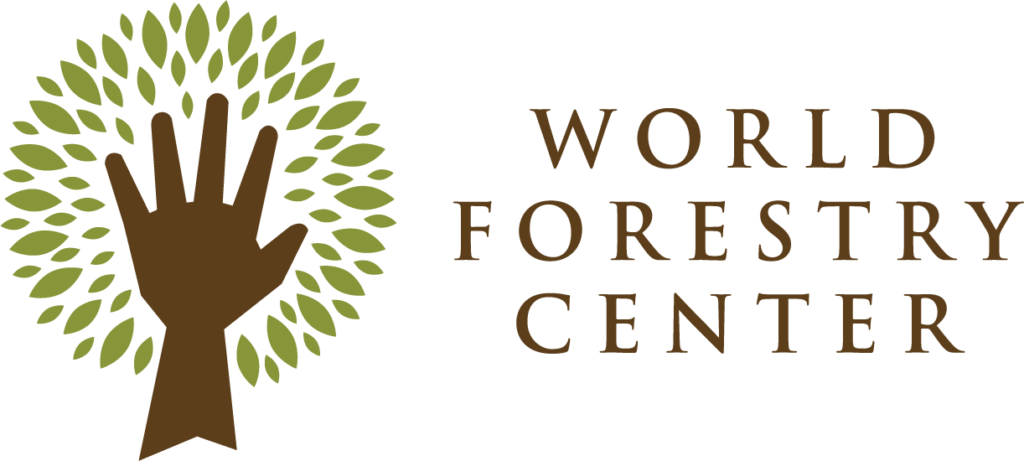
- This event has passed.
“Era of Megafires” on Wednesday, April 11th from 6:00-9:00 pm

Last summer, fires in Canada, Washington, and Oregon blanketed the Willamette Valley and much of our region in smoke. For many residents, it wasn’t safe to breathe the air outside. Is this the new normal? How can we manage forests to reduce the number of megafires each summer? And what can cities do to protect residents when major fires burn just beyond our borders?
Dr. Paul Hessburg, a research landscape ecologist with Pacific Northwest (PNW) Research Station will explain why the number of megafires—fires that burn more than 100,000 acres—has increased over the past decade and what we need to know to make smart decisions about fire and land management in the future.
Dr. Hessburg will be joined by a panel of Oregon-based experts who will discuss what is being done on the local level to manage fire impacts.
The reception and presentation will be held at Miller Hall at the World Forestry Center. Light refreshments and a cash bar will be available at 6 p.m. The talk will begin at 7 p.m.
This event is brought to you by The Nature Conservancy, The World Forestry Center, Oregon Forest Resources Institute, and City Club of Portland. The presentation was created by Paul Hessburg in collaboration with the United States Forest Service Northwest Research Station and North 40 Productions.
Presenter
Paul Hessburg is a research landscape ecologist based at the Pacific Northwest Research Station’s Forestry Sciences Laboratory in Wenatchee, Washington. He studies spatial patterns and processes in landscapes, including those related to human activities and natural disturbances. He began working for the research station in 1985 as a plant pathologist, and holds a Ph.D. in forest pathology from Oregon State University.
Among his accomplishments, Hessburg has played a leading role in two major landscape assessment and science synthesis efforts that are exceptional in their scope and complexity: the Eastside Forest Ecosystem Health Assessment and subsequent Interior Columbia River Basin Assessment. These projects developed new, statistically valid measures of the natural range of variability in forest and rangeland spatial patterns that serve as a basis for detecting change resulting from human settlement and management. The work has helped improve the ways that forests and grasslands are managed in the western United States, in part by shifting thinking beyond the stand level to large landscapes.
Hessburg also has a long record of working with forest managers to address on-the-ground issues. In collaboration with the Okanogan-Wenatchee National Forest, he pioneered a restoration strategy and a suite of landscape evaluation and planning tools that were implemented forest wide in 2012 and are being used today by several other national forests.
Panelists
Kirsten Aird is the Cross Agency Systems Manager for the Health Promotion and Chronic Disease Prevention Section in the Oregon Public Health Division. During her 18 years in public health she has fostered public-private partnerships to promote and support policy, system, and environmental strategies that address chronic disease prevention, early detection, and self-management.
Kirsten grew up in Oregon in a timber family. She spent her summers camping and her “take your daughter” to work day was always in the trees. Today her family owns a 90 acre tree farm outside of Eugene where she was married and where her children spend weekends and summer vacations exploring the woods.
Kirsten graduated from Emory University’s-Rollin’s School of Public Health with a Masters Degree in Public Health Policy and Management.
John Stromberg is a third-term mayor of Ashland, Oregon. He and his wife are from Northern California, but have been living in Oregon for the last 31 years. Now “retired,” John’s previous profession was as an organization and management consultant, working primarily in banking, public power, and telecommunications on issues related to deregulation.
His academic background includes a bachelor of science in physics from CalTech, a master of science in statistics from UC Berkeley, and a PhD in business administration from UC Berkeley. His dissertation was a RAND Corporation report, “The Internal Mechanisms of the Defense Budget Process.”
Mayor Stromberg has been a leader of the Ashland Forest Resiliency Project where the City and partners developed a community-based alternative for restoration and fire risk reduction in the Ashland Municipal Watershed that the Forest Service and partners are now implementing. In 2016, the Mayor participated in a White House Roundtable on communities, fire risk, and fire-adapted communities.
Ryan Haugo joined the Nature Conservancy in 2011 and served as the senior forest ecologist for the Washington and Idaho chapters before joining the Oregon chapter in 2017. Ryan is also an affiliate assistant professor at the University of Washington’s School of Environmental and Forest Science. In his current role, Ryan leads the Conservancy’s efforts across Oregon to develop and communicate a rigorous and responsive evidence base to drive conservation actions. After starting his career in environmental education, Ryan earned an MS and PhD from the University of Washington and served as a plant ecologist with the Washington Natural Heritage Program. When not at work, he spends much of my free time traveling across the great Pacific Northwest hiking, biking, and camping with his wife and two young daughters.
Moderator
Lisa Gaines is the director of the Institute for Natural Resources (INR), headquartered at Oregon State University. She has worked for more than 25 years with universities, government agencies, and NGOs to develop and manage multi-institutional natural resource and international development projects and programs. At heart, she is a facilitator and a networker. Lisa’s areas of interest and experience include the human dimensions of environmental risk, environmental policy and decision-making, citizen participation, evaluation, and international trans-boundary waters. She currently serves on the Oregon Geospatial Information Council, the Oregon Sustainability Board, the American Institute for Biological Sciences. She is a Senior Fellow with the American Leadership Forum of Oregon and President of the Corvallis Rowing Club. Lisa has a PhD in environmental sciences from Oregon State University.
Reception at 6:00 pm. Presentation and panel discussion 7:00-9:00 pm.
For more information, please contact our Senior Fellow, Rick Zenn, at rzenn@worldforestry.org
Registration is required. Register now
Thank you to our event sponsors:
- World Forestry Center
- City Club of Portland
- The Nature Conservancy
- Oregon Forest Resources Institute
- US Forest Service
- North 40 Productions
